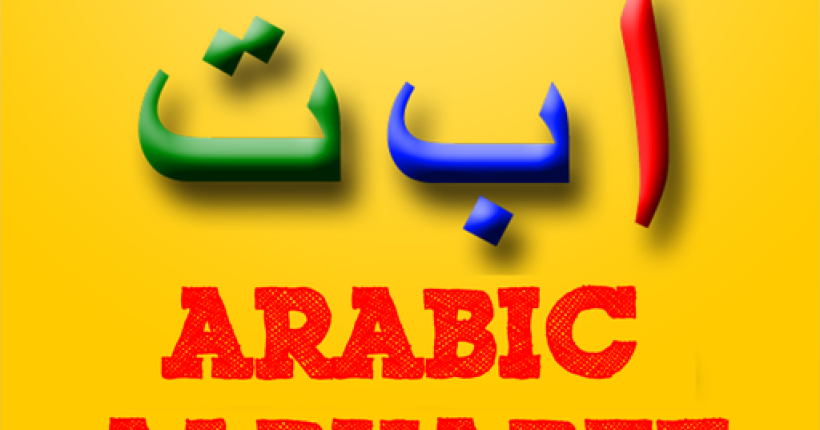Arabic for Quranic understanding is essential. It not only helps you recite the Quran but also helps you understand its beautiful verses.
Today, we will explore the top tips and tricks to help you learn Arabic for Quran reading and more! Let’s get started!
The Role of Arabic in Quranic Revelation

1. The Sacred Language of the Quran
The Quran was revealed in the language of Arabic, a decision of great significance in understanding the message of the Quran. Arabic for Quranic understanding is not only a method of reading the Quran, but it is also essential in preserving its original meaning.
The revelation of the Quran in Arabic allowed its linguistic beauty, nuances, and literary devices to convey divine wisdom in the proper way. The grammar and the morphology of the Arabic language were chosen such that the message from God should be kept simple and precise since each word and phrase in the Quran has profound meaning.
2. The Preservation of the Quranic Message
One of the main reasons why the learning of Arabic for Quranic understanding is the precision with which the message of God is translated into Arabic to its precise words.
The Quran itself demands the employment of plain and effective language to ensure that its guidance never gets compromised with the passage of time. Arabic for Quranic interpretation helps preserve the context, connotations, and intended meaning that may get lost or diluted in translation.
Unlike other languages, Arabic possesses a very rich linguistic heritage that is deeply based on the Quranic text and therefore cannot be substituted for anyone who wants to truly comprehend the depth of the Quran.
Why Learning Arabic for Quranic Understanding is Essential?

Here is why Arabic for Quranic understanding is essential:
1. Preservation of the Quran
One of the strongest reasons why Arabic is so important is that it helps to preserve the original sense of the Quran. The Quran was revealed in Arabic, and translation, no matter how well-intentioned, can never recreate the richness, nuance, and linguistic features of the original text.
Arabic for Quranic understanding ensures that one is able to read the Quran as it was first revealed, without distortion or limitation often caused by translation. Learning Quranic Arabic ensures that the subtleties of meaning buried in the text remain intact and a deeper spiritual connection with its teachings is established.
2. A Deeper Spiritual Connection with the Quran
The acquisition of Arabic for Quranic understanding and reading correctly enhances a deeper religious bond with the Quran. When one reads the Quran in the original language, he is able to experience its eloquence, beauty, and rhythm firsthand.
The bond enhances the emotional and spiritual impact of the Quran verses because the person now gains access to the material in its fullest expression. Reading the Quran in comprehension, and particularly in Arabic for Quran comprehension, provides a sense of closeness to the words of Allah, strengthening one’s faith and devotion.
3. Avoiding Misinterpretations
Misunderstandings of the Quran are created when its meaning is obtained on the basis of translations that could be inaccurate with respect to the context and richness of the original.
Arabic for Quranic interpretation enables readers to read the message of the Quran as originally meant, evading common misunderstandings or misinterpretations. From the study of Quranic Arabic, one is able to distinguish between literal and metaphorical meaning, so ensuring correct interpretation of the text.
4. Enhancing Tafsir Studies through Arabic
Tafsir, or Quranic interpretation, is significantly reliant on thorough knowledge of the Arabic language. Arabic for Quran reading serves as a gateway to an understanding of the various layers of Tafsir.
Tafsir scholars call the literary intricacies of the Arabic language a tool to interpret the meaning and context of the verses. Through learning Arabic for Quranic understanding, students can read classical explanations and react to modern scholarly writings on the Quran in their original context.
5. Accessing Quranic Scholars and Texts through Arabic for Quranic Understanding
Learning Quranic Arabic opens up a whole world of classical Islamic literature, from the works of early writers to contemporary commentators. Learning Arabic for Quranic studies provides learners with the ability to read and study such academic literature.
One can read and study Quranic commentaries, hadith collections, and other Islamic writings in their original state, and understand Islamic teachings more thoroughly and deeply, thanks to Arabic knowledge.
6. Adherence to Religious Duties
One significant aspect of Islamic worship, especially in prayer (Salah), is reading the Quranic verses in their authentic Arabic. Arabic for Quranic understanding is necessary to be able to fully grasp the words being read in prayer.
Knowing the meanings of the verses being read brings about greater awareness and spiritual fulfillment during worship. Understanding the message of the Quran makes the worshippers themselves more connected with the prayer and God.
How to Start Learning Quranic Arabic?

Here are some tips for learning Arabic for Quranic understanding:
1. Begin with the Basics of Arabic Grammar for Quran Understanding
When starting to learn Arabic for the purpose of understanding the Quran, it is necessary to start with the basics of Arabic grammar first. Key topics such as verb conjugation, noun cases, and sentence structure are the foundation for comprehending the language.
Arabic for Quranic reading includes the comprehension of how words differ based on the context within the Quran, as grammar forms an integral component of reading the material as it is meant to be. Good understanding of grammar to begin with facilitates learners in advancing their ability to read and translate the Quran as it ought to be.
2. Build a Strong Vocabulary
The beginning point to learn Arabic for understanding the Quran is to begin with vocabulary development, especially those most frequently used words in the Quran. Most of these words derive their meanings from Islamic ideology.
Knowing the root words and derivatives makes the message of the Quran more understandable. Materials such as word lists of Quranic vocabulary, flashcards, or Quranic Arabic apps can make the learning process easier.
3. Learn the Phonetics and Tajweed Rules
Reading is not everything about Arabic for Quranic understanding; pronunciation comes into play as well. Proper Tajweed, the rules for the correct pronunciation of Quranic Arabic, is required to recite the Quran properly.
Tajweed also determines how the interpretation of a word can change depending on its pronunciation. Following these rules ensures proper and meaningful recitation. You can start by listening to skilled reciters and practicing with audio materials to get familiarized with the unique sounds of Quranic Arabic.
4. Learn Quranic Arabic Syntax and Sentence Structure First
Arabic for Quranic understanding involves recognizing the unique syntax and sentence structure utilized in the Quran. Quranic Arabic uses a lot of inverted sentences, ellipses, and other less common forms which are not usual in Modern Arabic.
Understanding how these forms operate within a given context is essential to interpreting the verses appropriately. Reading the Quran with respect for its sentence construction will help you appreciate more the rhetorical eloquence and divine revelation of the book.
5. Enroll in an online Course
To acquire Arabic skills for Quranic knowledge, there is no better approach than being a part of a credible program such as courses offered by the Tareequl Jannah Academy.
The academy offers customized packages that cater especially to educating Quranic Arabic at basic to higher levels. The classes cover not just learning the language but also the background, nuances, and inner sense of Quranic verses.
Tareequl Jannah Academy also provides lessons on Tajweed, vocabulary, and grammar, which help you build a full understanding of Quranic Arabic.
6. Practice Regularly and Engage with the Quran in Arabic
As with any language, the practice is what will allow you to master Arabic for Quranic understanding. Spend some time every day reading and understanding the Quran in its native Arabic. Start by memorizing short Surahs and their translations.
As you move forward, you can move to longer verses but still review the vocabulary and grammar that you have mastered. Reading the Quran in Arabic for Quranic understanding will both improve your understanding as well as recitation.
7. Seek Assistance from Quranic Arabic Tutors or Online Websites
If you need more one-on-one help, consider hiring a tutor who specializes in Arabic for Quranic knowledge. There are numerous online websites that have one-on-one tutoring with expert Quranic Arabic instructors.
Tareequl Jannah Academy, for example, offers one-on-one tutoring classes where students get personal guidance and feedback. It is possible to learn this way because you will be able to check on a regular basis whether or not you are improving in your learning process and fix any problems you might experience during your learning process.
Overcoming Challenges in Learning Quranic Arabic
Here is how to overcome any challenges when learning Quranic Arabic:
1. Establishing Consistency in the Study of Arabic for Quranic Comprehension
Consistency is one of the primary obstacles to learning Arabic for Quranic understanding. Regular practice is essential in language acquisition, and since Quranic Arabic is complex, it can prove challenging to keep oneself motivated.
To overcome this challenge, make a specific study and review session each day with dedicated time allocated to study the most important aspects. You can start small, with one or two verses, and then gradually increase your study time. Consistency will serve to solidify what you have learned and build up your knowledge and retention of Arabic for Quranic studies over time.
2. Meeting the Challenge of Quranic Grammar for Arabic for Quranic Comprehension
Quranic Arabic grammar can be daunting, with many rules to Modern Arabic. This may be difficult for students familiar with spoken Arabic or formal Arabic grammar.
To address this, learn one thing at a time. Start with Quranic grammar fundamentals, such as verb conjugation and noun declension, before moving on to more advanced topics like syntax and sentence forms.
There are many web-based platforms like Tareequl Jannah Academy that deliver well-arranged lessons in a simplified format, making Arabic for Quranic understanding easy to comprehend.
3. Avoiding Hurdles in Pronunciation with Arabic for Quranic Understanding
Pronunciation, and especially with Tajweed principles, is a main issue in mastering Arabic for Quranic understanding. Incorrect pronunciation would change the word’s meaning, and thus you must do it right from the start.
A potential solution is listening to trained Quran reciters and copy their pronunciation. Through practice, guided by an experienced tutor possessing specialization in Quranic Arabic, you can have the correct articulation.
Tareequl Jannah Academy offers Tajweed classes specifically to assist students in gaining control over the pronunciation, for which this is the simplest solution.
4. Learning Quranic Arabic Vocabulary to Understand the Quran
Arabic for Quranic understanding vocabulary becomes challenging due to uncommon and repetitive use of certain vocabulary in the Quran. To assist in overcoming this obstacle, study the most common words used in Quranic Arabic.
Make flashcards or utilize smartphone applications that are designed to teach vocabulary from the Quran. Repeat these words and see them used in context so they become implanted in your mind.
With time, you will get used to seeing these words around, and the text becomes less difficult to read. Furthermore, Tareequl Jannah Academy offers vocabulary classes specifically aimed at individuals interested in reading the Quran on a deeper level.
5. The Transition from Modern Arabic to Quranic Arabic in Understanding the Quran
If you already know Modern Arabic, transitioning to Arabic for understanding the Quran may initially seem challenging due to variations in vocabulary, syntax, and construction. The key to overcoming this gap is patience and gradual learning.
Focus on mastering the distinctive features of Quranic Arabic, such as its classical syntax and use of certain rhetorical devices. Read books which compare Modern Arabic with Quranic Arabic, and slowly read Quranic verses in their original script. This will help bridge the gap between both forms of the language.
6. Sustaining Motivation on Your Road to Understanding the Quran
Arabic for Quranic understanding is sometimes slow in the making, but the reward is high. To stay motivated, keep your thoughts centered on the final goal: learning the Quran from its initial script.
Sharing with students or being in class that has a study program, such as that offered by Tareequl Jannah Academy, can cause you to feel more connected with your process. Sharing with fellow learners and comparing challenges and victories will keep you motivated throughout your study process.
7. Seeking Help from Experienced Tutors in Arabic
In other cases, the obstacles in learning Arabic for Quranic interpretation are best overcome with help from experienced tutors. An experienced tutor with knowledge about Quranic Arabic will help you overcome difficult parts, such as pronunciation or understanding complex grammar rules.
Tutors give you personalized feedback and provide learning materials adjusted to your learning speed and understanding level. Tareequl Jannah Academy offers individual one-to-one lessons that can direct you ahead more appropriately by taking care of your individual Quranic Arabic learning requirements.
The Benefits of Understanding Quranic Arabic
Understanding Arabic for Quranic understanding holds profound benefits that enhance not only your religious growth but also your academic growth.
When you study Quranic Arabic, you become closer to the original message of the Quran, have a better understanding and interpretation of its verses more precisely, and improve your recitation and comprehension. It lets you relate to the Quran in the most original manner possible, free from translation.
Besides, it provides access to classical Islamic literature, enhances your qualification to teach and transmit the Quran, and enhances your mastery of Islamic jurisprudence and theology.
Conclusion
Arabic for Quranic understanding is an eye-opening adventure that ushers in a greater and more substantial connection with the Quran.
Through comprehension of Quranic Arabic, you transcend mere translation and read the holy book in its unadulterated form, unlocking the complexity and richness of its messages.


